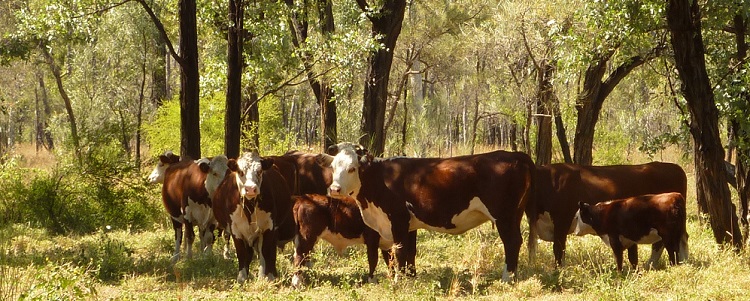Farmers and local landholders of the Bimblebox Alliance Inc, represented by Environmental Defenders Office, are challenging Clive Palmer’s massive proposed Galilee Basin coal mine, arguing it would cause irreversible environmental damage and unacceptable impacts to local agriculture.
Bimblebox Nature Refuge, 500km west of Rockhampton and 30km north west of Alpha, consists of 95% uncleared semi-arid woodlands. Bimblebox is an exceptional example of how sustainable agriculture and conservation can co-exist. The private conservation reserve is one of the largest tracts of intact woodland in Queensland and home to hundreds of bird and animal species, many of which are rare or endangered. For example, it is habitat for the endangered Black-throated Finch, the vulnerable Squatter Pigeon and the Near Threatened Black-chinned Honey Eater and Black-necked Stork.
Local graziers are helping preserve an important un-industrialised part of the Australian landscape, its vital ecosystems and regional culture for future generations. All that would be swept away if this mining proposal ultimately proceeds.
Under the Galilee Coal Project proposal from Waratah Coal Pty Ltd (formerly known as China First), roughly 50% of the 8000-hectare Refuge would undergo large-scale clearing for two open-cut coal pits. Most of the remainder would be underlain by four underground mines and therefore subject to subsidence.

Land Court objections
In December 2019, Bimblebox Alliance filed legal challenges in the Queensland Land Court over the Environmental Authority and Mining Lease applications for the Galilee Coal Project. Objections to the project have been lodged under the Environmental Protection Act 1994 and Mineral Resources Act 1989.
On behalf of Bimblebox Alliance, EDO will argue the Environmental Authority application should be refused on 11 grounds – including that approval would cause environmental harm and would not be consistent with the core objectives of ecologically sustainable development.
EDO will also argue that the Mining Lease application should be refused on 12 grounds, including that there will be significant adverse environmental, social and economic impacts caused by this project and its operations.
The proposed mine would produce 40 million tonnes per annum of thermal coal over a life of 25-30 years, generating around 2.9 billion tonnes of greenhouse gas emissions, inconsistent with the aims of the Paris Agreement to constrain climate change.





